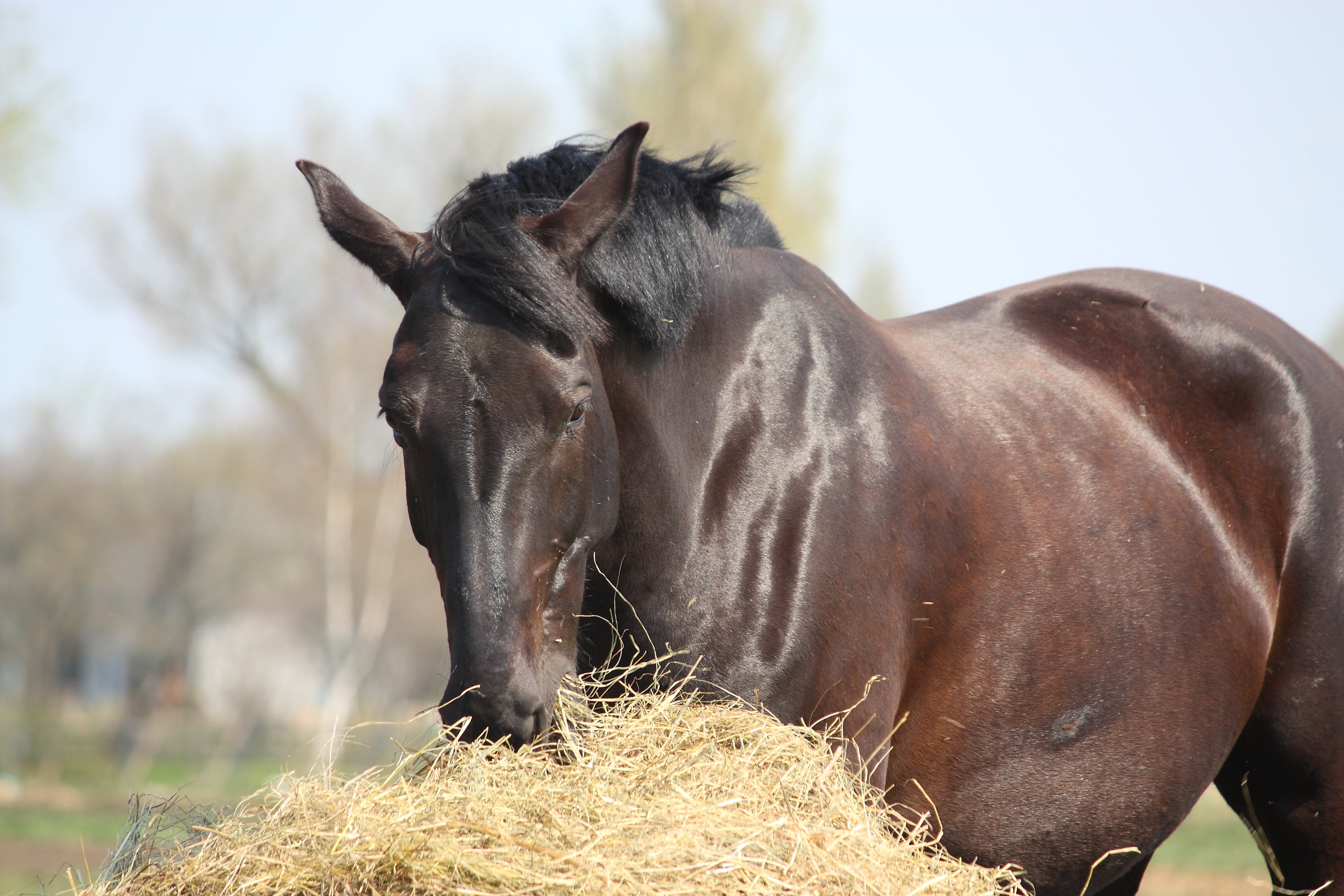Home > Horse Care > Variations in drug absorption studied
Variations in drug absorption studied
- December 6, 2022
- ⎯ Equus
A study from Poland suggests that a horse’s diet can affect how quickly he absorbs the medications he receives.
Investigating reports of resistance to ivermectin among cyathostomes (small strongyles) in their region, researchers at the University of Warmia and Mazury in Olsztyn tested the absorption rate of the drug in horses at different times of the year.

For the first phase of the study, which was conducted in May, nine warmblood horses were given a standard dose of ivermectin and had their blood drawn at regular intervals for analysis of medication levels. Fecal samples were also collected before and periodically after the ivermectin treatment to determine its efficacy against parasites. The following November, the researchers repeated the same procedures with the same horses.
The data showed that the speed of ivermectin absorption varied with the seasons. Blood concentrations of ivermectin were significantly higher during the first four hours after administration in the spring trials, compared to those conducted in the autumn. This effect was only temporary, however. Maximum blood concentrations of ivermectin were achieved within 36 hours of administration among all of the horses in both spring and autumn.
The researchers speculate that diet, rather than season of year, accounts for the variability in absorption. During the spring trials, the study horses were turned out full-time and ate more grass; in the autumn, they were kept in stalls, shared paddocks and consumed more hay. “Hay has a much bigger content of crude fiber that can absorb and bond the drug in the intestines,” explains Rajmund Sokó, DVM.
[Click here to learn three ways to protect your hay supply.]
Fortunately, this slower absorption rate had no effect on ivermectin’s efficacy. The researchers found complete elimination of parasite eggs from the fecal samples within four days of treatment in both study periods. “In our opinion, the dose of drug was large enough to be effective even in case of poor intestinal absorption,” says Sokó.
Nonetheless, he adds, these findings raise questions about how diet may affect the absorption of other medications. “We have tested ivermectin only, but it is quite probable with other drugs,” he says. “This problem is better described in human pharmacokinetics, as various food and beverages can influence the bioavailability of drugs.”
Reference: “A comparison of the efficacy and pharmacokinetics of ivermectin after spring and autumn treatments against Cyathostominae in horseshttps://pubmed.ncbi.nlm.nih.gov/26172188/,” Polish Journal of Veterinary Sciences, February 2015
This article first appeared in EQUUS issue #457
Don’t miss out! With the free weekly EQUUS newsletter, you’ll get the latest horse health information delivered right to your in basket! If you’re not already receiving the EQUUS newsletter, click here to sign up. It’s *free*!





